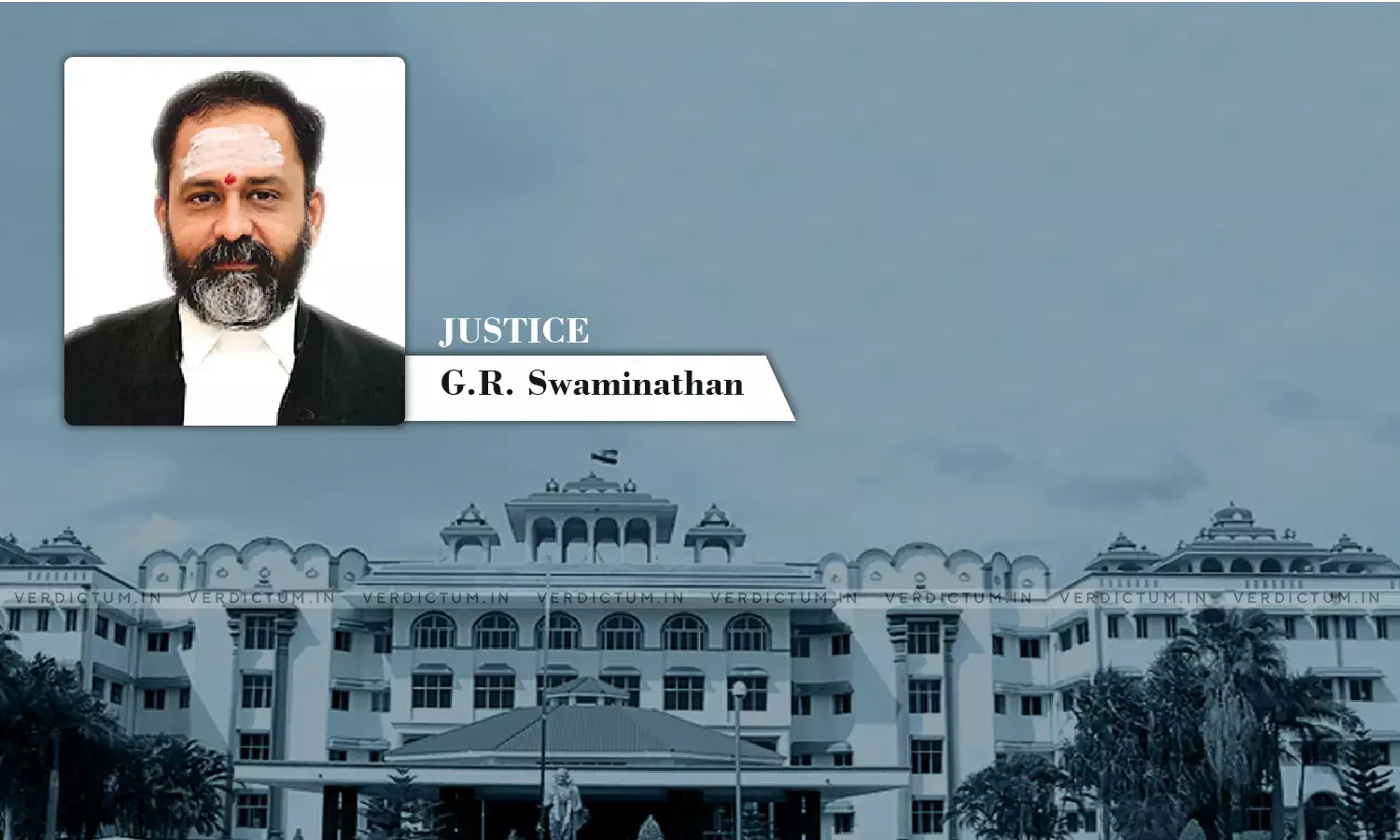State Has To Exercise Its Parens Patriae Jurisdiction In Case Of Mentally Disabled Who Are Without Family Support: Madras HC
The Madras High Court observed that the State has an obligation to extend its parens patriae jurisdiction to provide for adults suffering from mental health illnesses who lack family support. The doctrine of Parens patriae entrusts the State with the responsibility of caring for individuals unable to care for themselves, including orphaned children, persons with disabilities, and senior citizens.
The Single-Judge Bench of Justice GR Swaminathan of the Madurai bench issued an order on June 10, directing the Tamil Nadu government to ensure "lifelong accommodation and medicare" for a 20-year-old mentally disabled individual.
The Court's direction came in response to a Writ Petition filed by the individual's parents, who are daily wage laborers and expressed their inability to continue caring for their son due to financial and emotional constraints.
Highlighting the provisions of the Rights of Persons with Disabilities Act, 2016, the Court emphasized that the State is mandated to provide care for individuals with disabilities who lack family support, extending this obligation to adults with mental disabilities.
While the Act ostensibly addresses children lacking family support, the Single-Judge Bench reasoned that its principles could be applied to mentally disabled adults in similar circumstances. Citing Section 25 of the Act, which outlines measures for healthcare for persons with disabilities, the Court stressed the State's responsibility to ensure their well-being.
"..one can come to a safe conclusion that the State has to exercise its parens patriae jurisdiction in the case of mentally disabled who are without family support. When the State fails to exercise its duty, the constitutional Court exercising jurisdiction under Article 226 of the Constitution of India will direct the authorities to discharge the aforesaid function. The State is obliged to set up residential homes for the mentally disabled in every District. This alone will reduce overcrowding. There are NGOs who have set up such shelter Homes. The State should liberally support them financially so that the inmates can survive decently and also have requisite medical care," the Court said.
The Bench further stated that it is open to NGOs to move the State for appropriate financial support and it is the duty of the State to provide the necessary budgetary allocation. "The State must be thankful to the NGOs for relieving it of its primary burden. If the NGOs are not there, it is the duty of the State which will have to provide complete infrastructural support," the Court remarked.
The Court suggested that the State to come up with appropriate policies and said, "Those in-charge of the institutions must ensure that the wardens and supervisors do not run amok. It is not possible to elaborate beyond a certain point. I would expect the Government to come out with appropriate policies and regulations. That is why, I suo motu impleaded the State Government. I realise that these matters have financial implications. That is why, I have not laid down any time frame."
While granting the petitioners' request, the Court underscored the convergence of various legislative frameworks, including the Rights of Persons with Disabilities Act, the Mental Healthcare Act of 2017, and the National Trust for Welfare of Persons with Autism, Cerebral Palsy, Mental Retardation, and Multiple Disabilities Act, 1999, in imposing liability on the State to care for affected individuals.
The Court issued a series of directives to both the Tamil Nadu government and the Union government, mandating the provision of adequate infrastructure facilities and medical care for individuals with physical disabilities and mental health illnesses alike.
"I, therefore, direct the respondents 1 to 3 to take appropriate steps to take the petitioner's son in their custody and house him in an. appropriate accommodation and also provide him with lifelong medical care. Of course, this arrangement will terminate the moment the patient is found fit to be discharged. This writ petition is allowed. No costs," the Court ordered.
Cause Title: Gurunathan v. The Deputy Director and Ors.
Appearance:-
Petitioner: Advocate N.Balasubramanian
Respondent: Advocate P Thambidura (GA)
Click here to read/download the Order




